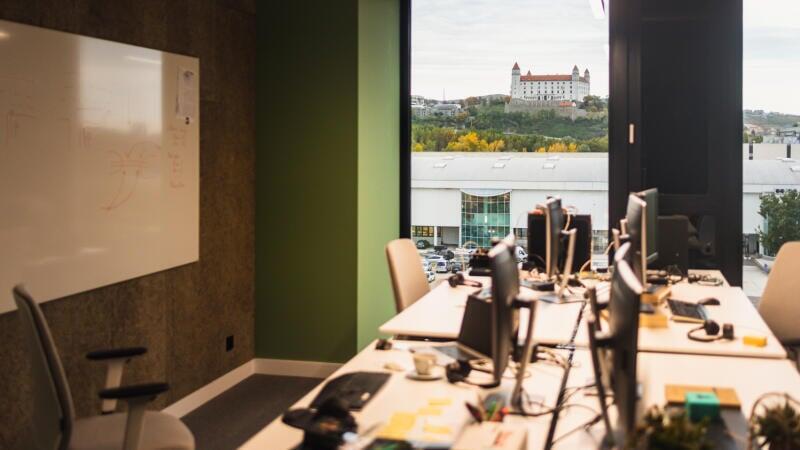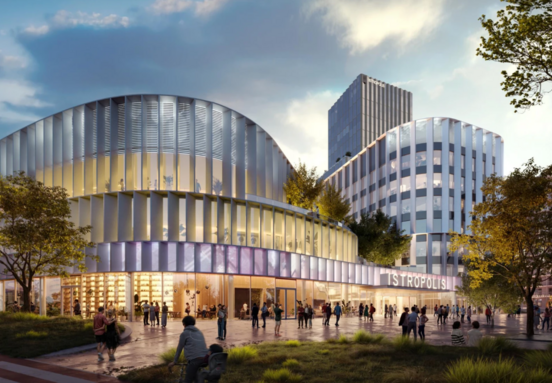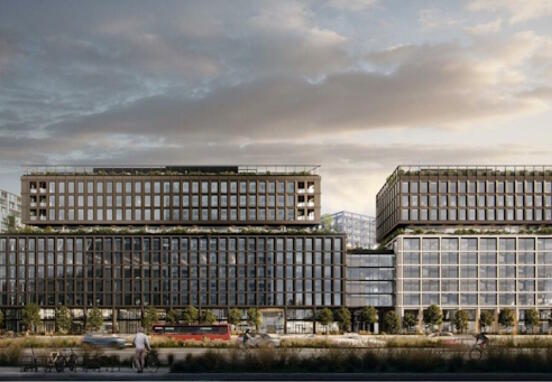The Slovak Office Space Landscape: A Conservative Trend
Slovak companies largely hold a conservative stance on their office premises. A striking 57 percent of firms in Slovakia own their office spaces, yet only 40 percent fully utilize them. Despite this underutilization, very few companies plan to relocate to new offices within the next three years, indicating a strong preference for stability and ownership over potential efficiency gains. This behavior reflects a long-standing cultural inclination towards real estate ownership, whether for private or corporate purposes.
Bratislava: A Distinctly Different Market
The capital city, Bratislava, stands as a notable exception to this nationwide trend. Here, nearly two-thirds of firms opt for leased offices, a stark contrast to the rest of Slovakia where ownership predominates. Furthermore, while only 3-6 percent of companies outside Bratislava plan to move, a significant 20 percent of firms in the capital are considering relocation, showcasing a much higher market dynamism and adaptability.
Ownership Trends by Company Size
Company size also plays a role in these preferences. Larger enterprises with 50 or more employees own their premises in 70 percent of cases. Conversely, among smaller firms, the situation is balanced, with an even split between ownership and leasing. This highlights differing strategic approaches based on a company's scale and capital strength.
Embracing Modernity: Renovation and Underutilization
While nine out of ten Slovak firms occupy buildings older than five years, half of these spaces have undergone at least partial renovation within the last five years. This trend suggests that even companies with older properties are striving to meet modern standards of efficiency and representation. However, a significant phenomenon in recent years is the lower utilization of office spaces, largely attributed to the widespread adoption of remote work. Data shows that only 40 percent of firms use their offices at 76-100 percent capacity, with the majority utilizing them only partially. Approximately 30 percent operate at 51-75 percent capacity, and 20 percent use less than half of their available space.
The Rise of Flexible and A-Class Offices
This underutilization is driving a growing demand for more efficient space arrangements and the expansion of flexible office solutions. Experts note a rising interest in coworking spaces and modular workstations. Radko Rozum, Head of Products and Sales Support at 365.invest, confirms this trend: “Currently, we see the greatest interest in A-class buildings – those in the city center or wider center, with excellent accessibility and amenities. Increasingly, flexible office spaces are also coming into the focus of tenants, as they can adapt to the changing demands of companies and the market.” This indicates that businesses are actively seeking solutions that allow them to quickly respond to evolving workplace needs.
Why Renting Offers a Strategic Advantage in Slovakia
Despite the growing popularity of flexible solutions and open office concepts, most Slovak firms remain rooted in traditional arrangements. The concern over unused space has not yet led to a significant shift in corporate behavior, with 90 percent of companies outside Bratislava planning no changes to their headquarters within the next three years. However, as experience shows declining space utilization, the potential for rental solutions becomes increasingly evident.
While 62 percent of firms have experience with relocation, most of these moves occurred more than a decade ago (27 percent of respondents). Only eight percent of companies changed their headquarters in the last three years, underscoring a deep-seated stability and inertia in decision-making. Firms are cautious, prioritizing the optimization of existing conditions over planning a move.
As R. Rozum states, “Ownership or investment in real estate is very popular among Slovaks. It is interesting to see that the same trend applies to the ownership of premises where companies are based. At the same time, however, there is still great potential for companies that rent office space.” The current state of the Slovak office market, while stable due to prevailing ownership, also presents significant opportunities. For businesses seeking to optimize costs, enhance flexibility, and adapt to modern work models without the burden of underutilized owned assets, the rental market, especially in dynamic hubs like Bratislava, offers a strategic pathway forward. This evolving landscape ensures that businesses willing to embrace new models can find solutions tailored to their needs.
Source: reality.trend.sk







